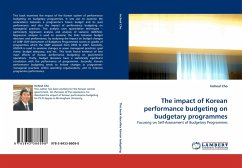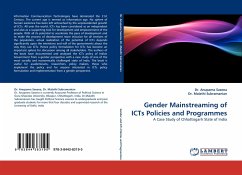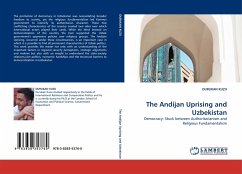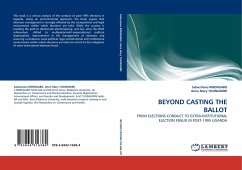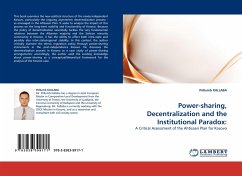This book examines the impact of the Korean system of performance budgeting on budgetary programmes. It sets out to examine the associations between a programme's future budget and its past performance and also the impact of performance budgeting on managerial practices. This analysis uses quantitative techniques - particularly regression analysis and analysis of variance (ANOVA). Regression analysis is used to examine the links between budget decisions and performance, by analysing the impact on budget changes of SABP (Self-Assessment of Budgetary Programmes) scores or grades of programmes which the SABP assessed from 2005 to 2007. Secondly, ANOVA is used to examine changes in seven managerial practices: goal clarity, budget adequacy, and etc.. This book found evidence of two main effects of Korean performance budgeting on government operations. Firstly, budget decisions have a statistically significant correlation with the performance of programmes. Secondly, Korean performancebudgeting tends to initiate changes in programme-managerial practices within spending organizations, and to improve programme performance.
Bitte wählen Sie Ihr Anliegen aus.
Rechnungen
Retourenschein anfordern
Bestellstatus
Storno

